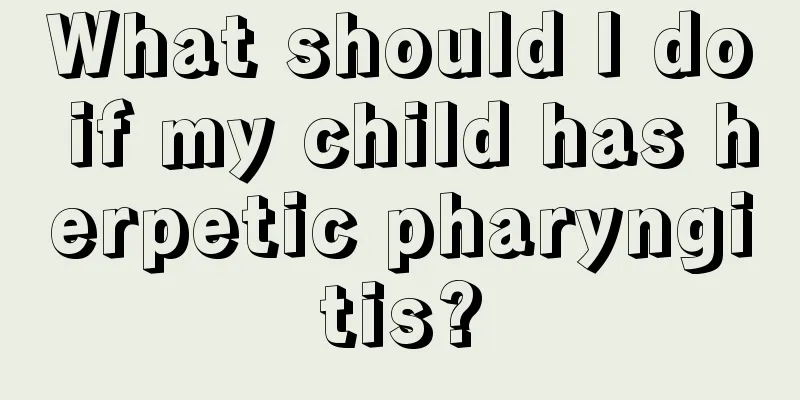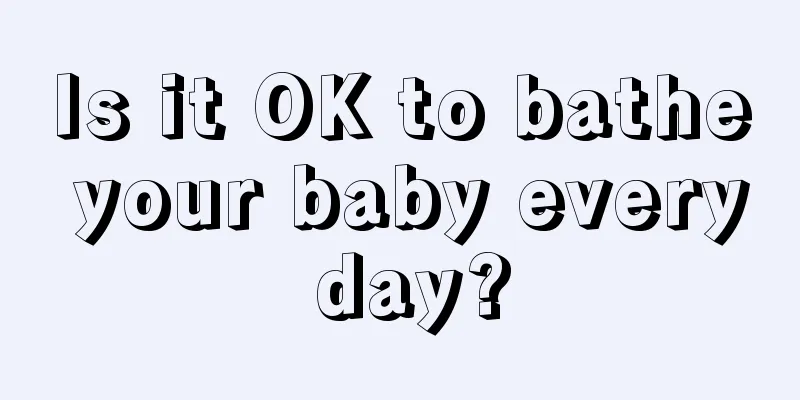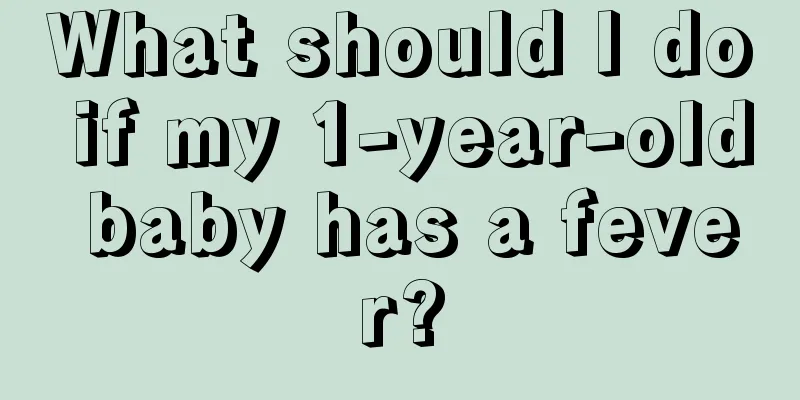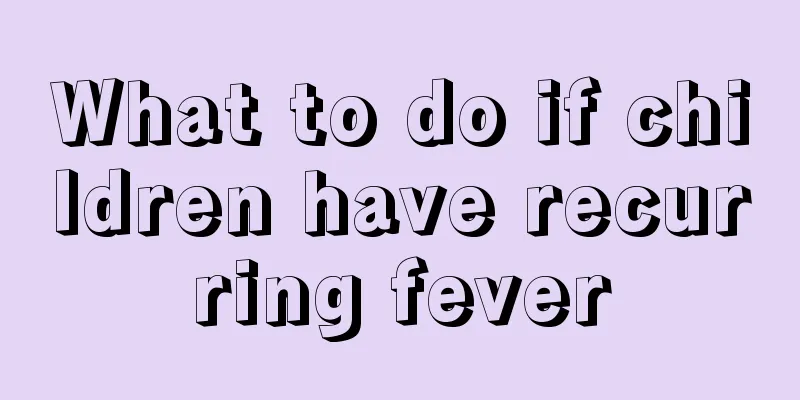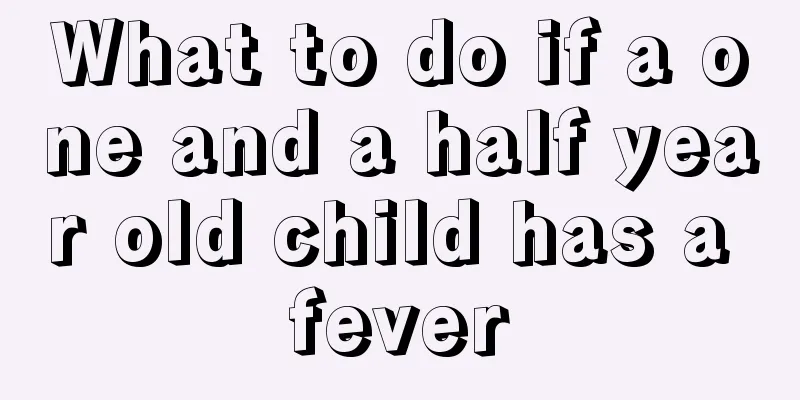What medicine should children take for dry cough without phlegm? Let the experts tell you!
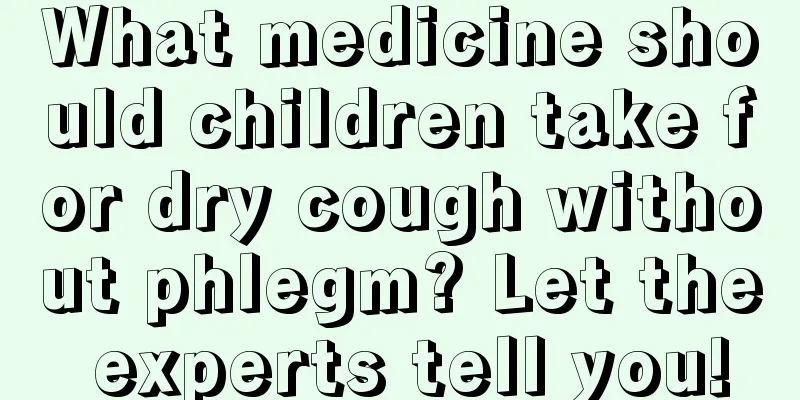
|
Children often cough, which makes parents very distressed, mainly because the children’s respiratory system is not yet sound enough and they are easily infected by bacteria. When a child coughs, the first thing parents think of is to give him medicine, but choosing what medicine to take is also very important. 1. Children's coughing is a distressing thing for many parents. Because children's respiratory system defense function is not sound and their cough reflex is not sensitive, their coughing and sputum symptoms are different from those of adults. Younger babies may choke when drinking water or feeding. In severe cases, the milk may come out of their mouths and noses, making it difficult for them to eat. If we are careless, weak infants and young children may choke on milk that enters their trachea, blocking their breathing and causing suffocation, which is life-threatening. Infants and young children cannot consciously cough up phlegm, so the phlegm will be automatically swallowed into the stomach when it reaches the throat. What they vomit out from the stomach is often mucus. Children who cough more often have purring sounds in their larynx, which is a sound of phlegm in the throat, which sounds like a cat snoring. In addition, there is a special cough that sounds like a dog barking and makes a "hollow" sound. It is called a barking cough, which is a unique symptom of acute laryngitis. If the throat is stuffy and purple, it means that the laryngeal edema is severe and threatens the child's life. There is no doubt that coughing causes a lot of pain to children. 2. Radish and honey drink (for cough) Ingredients: 5 slices of white radish, 3 slices of ginger, 3 dates, and 30 grams of honey. Preparation and administration: Boil radish, ginger and jujube in appropriate amount of water for about 30 minutes, remove the residue, add honey and boil again. Take while warm. 1 to 2 times a day. Function and indications: Radish tastes spicy and sweet, and is cool in nature. It has the effects of clearing away heat and promoting body fluid, cooling blood and stopping bleeding, and resolving phlegm and relieving cough. Its alcohol extract has a strong antibacterial effect on Gram-positive bacteria. Ginger is a commonly used medicine for dispelling wind and cold, stopping vomiting and relieving gas. Jujubes are mostly used to harmonize the stomach, nourish blood and harmonize medicines. Honey moisturizes and relieves cough. This drink can dispel cold, clear the lungs, dispel wind and relieve cough. 3. If you catch a cold, have a fever, or have a cough, you can try the following methods, especially for babies under one year old. (1) Adults should rub their hands together to warm them up, and then cover the baby's fontanelle with their warm hands. The baby will sweat and the fever will go away. (2) If the patient has a runny nose, the mother can drink some ginger and brown sugar water. (3) If the above methods do not work, use Ding Gui Er navel stick, one quarter stick to the navel, and one quarter stick to the Yongquan point of the right foot. Apply it overnight, for 12 hours, then remove it and apply it again at night. |
<<: What should I do if my child has rhinitis and cough? Medical experts tell you how
>>: What should I do if my child coughs and has phlegm? Don’t miss these methods!
Recommend
What to do if a child has a fever caused by bacterial infection
Some parents become very nervous when they find t...
Baby allergic symptoms to goat milk powder
Babies are in the most critical period of life wh...
What to do if your seven-month-old baby has thrush
The immunity of a seven-month-old baby is not ful...
Why are children's hands shaking?
I believe that many parents often find that their...
What to do if your baby has a stuffy nose in the middle of the night? Symptomatic treatment works quickly
If your baby has a stuffy nose in the middle of t...
What are the folk remedies for children's colds?
If your child has a cold, parents should not rush...
Treatment of baby's knee synovitis
Do you know what synovitis is? This kind of synov...
Reasons why babies sweat a lot on their heads when sleeping at night
It is a common phenomenon for babies to sweat a l...
What are the hazards of hemangioma on the baby's head?
Hemangioma is a relatively common benign tumor, b...
What is the reason for baby's puffiness?
Many parents nowadays do not realize that babies ...
Is it too late for a child to lose teeth at the age of seven?
Children start to change their teeth when they ar...
What to do if your 4-month-old baby is constipated
Every change in the baby after birth is watched b...
How to treat ascariasis in children?
Children are the group most susceptible to roundw...
Why does a child's hair grow slowly?
Everyone's hair grows at a different rate. So...
What medicine should children take after fever and cough
Since children have weaker immunity than adults, ...

